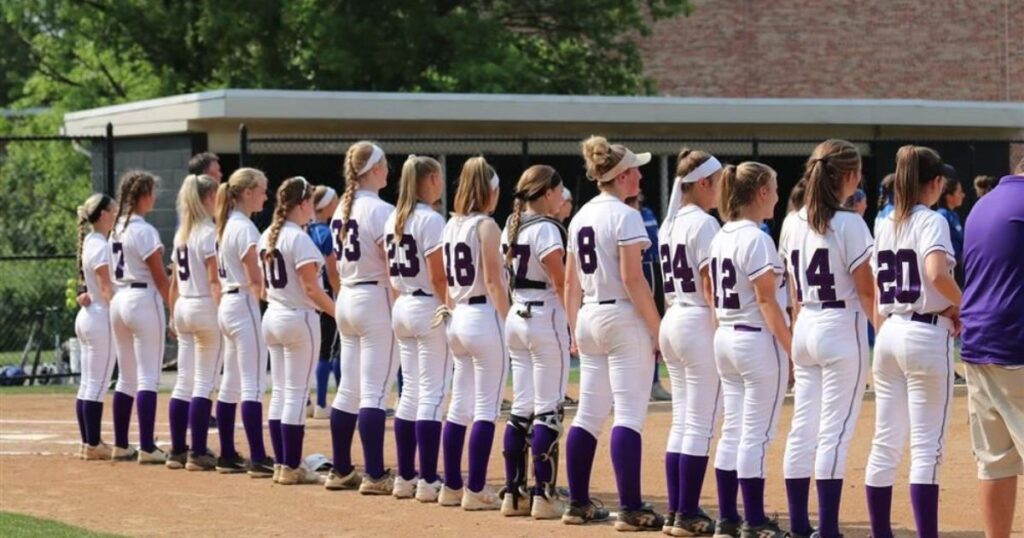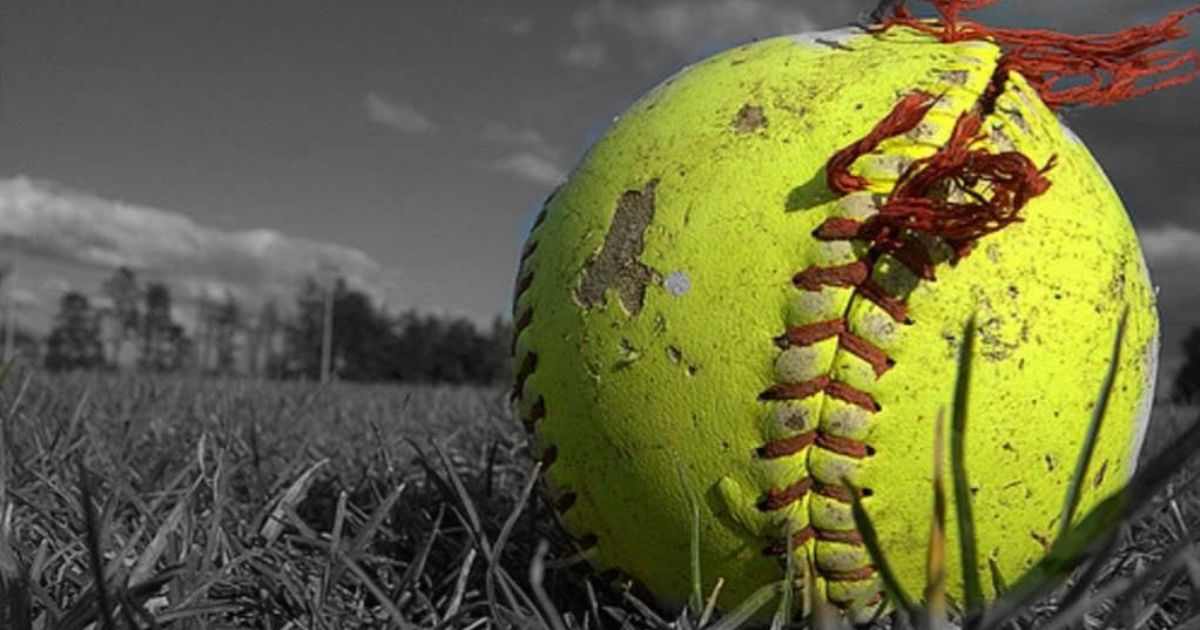Softball, a popular and beloved sport, has a distinct season that varies depending on the level of play and geographical location. Understanding when the softball season ends is essential for players, coaches, and fans alike. It allows teams to prepare for the next season, and fans to reflect on the highlights.
Are you ready to swing into action? Discover when the softball season ends and plan your next move. You’re a dedicated player or a passionate fan, understanding the season’s conclusion is key to staying in the game. Join us in exploring the world of softball .
In this comprehensive guide, we will explore the factors that influence the conclusion of the softball season, from youth leagues to professional organizations. We will delve into the significance of softball seasons and the different types of competitions that mark the end of the season. So, keep your eye on the ball.
The Significance of Softball Seasons
Softball is more than just a sport; it’s a way of life for many. The game brings people together, fosters camaraderie, and builds lifelong memories. The softball season isn’t just about matches and scores; it’s about the experiences, friendships, and life lessons that players and fans gain throughout the year.
As such, understanding when the softball season ends is not just about marking dates on a calendar; it’s about recognizing the transition from one chapter to another in the softball community.
Factors Influencing the Duration of Softball Seasons
The length of the softball season can vary significantly based on a multitude of factors. These factors include geographical location, the level of play, the type of competition, and the age group of the players involved. Let’s explore each of these factors in detail.
Geographical Location
One of the most significant factors influencing the duration of the softball season is the geographical location in which the sport is played. The climate and weather patterns in a specific region can have a profound impact on when the season begins and ends.
For example, in regions with milder climates, such as the southern United States, softball seasons can extend year-round. In contrast, in colder northern regions, the season is more likely to be limited to the spring and summer months.
Level of Play
The level of play also affects the duration of the softball season. At the youth and amateur levels, seasons are typically shorter, spanning a few months, while professional leagues may have more extended seasons that last several months.
The frequency of matches and tournaments increases as the level of play becomes more competitive, resulting in a longer season.
Type of Competition
Softball is played at various levels and in various formats. These formats include regular season games, playoffs, tournaments, and exhibition matches. The type of competition and the number of rounds or stages within a competition can impact when the season comes to an end.
Playoff seasons can extend the softball season significantly, as teams compete to become champions in a series of games.
Age Group of Players
Softball is enjoyed by players of all ages, from young children to senior citizens. Different age groups may have distinct seasons tailored to their needs. Youth leagues often have shorter seasons that coincide with the school year, while adult leagues may continue throughout the summer and even into the fall.
Youth Softball Seasons

These seasons play a fundamental role in introducing children to the sport, teaching them important life skills, and fostering a love for the game. Youth seasons usually follow a specific schedule to align with the academic year and accommodate the needs of young players.
Elementary and Middle School Leagues
Elementary and middle school leagues often have shorter softball seasons that mirror the school year. These seasons typically begin in the spring, coinciding with the start of the academic calendar, and conclude in late spring or early summer.
The goal is to provide children with a taste of the sport and encourage their participation without interfering with their studies.
High School Softball Seasons
High school softball seasons are a step up from the youth leagues, with more competitive play and longer schedules. These seasons often begin in the early spring and run through the end of the school year, concluding with state championships or regional tournaments in the late spring or early summer.
The intensity of high school softball seasons prepares players for potential college or professional careers.
Amateur Softball Seasons
Amateur softball leagues are an integral part of the sport, allowing players of various skill levels to continue playing the game beyond high school. The length of these seasons can vary significantly, depending on the level of play and the format of the competition.
Recreational Leagues
Recreational softball leagues, often played for fun and social interaction, tend to have shorter seasons that span from late spring to late summer. The focus is on enjoyment rather than intense competition, and the seasons typically conclude with a final tournament or championship game.
Competitive Leagues
Competitive amateur softball leagues, on the other hand, can have more extended seasons that extend from early spring to late summer. These leagues include teams with higher skill levels and compete in more competitive tournaments, leading to an extended duration of play.
Senior Leagues
Senior softball leagues cater to older players and may have seasons that run from spring to fall, allowing seniors to enjoy the sport for a more extended period. These leagues focus on promoting physical activity, camaraderie, and maintaining a connection to the game.
College Softball Seasons
College softball seasons offer an exciting and competitive environment for players looking to take their game to the next level. The duration of college softball seasons varies depending on the division, conference, and postseason play.
NCAA Softball
NCAA softball, which includes Division I, II, and III, typically has seasons that begin in late winter or early spring and continue through the regular season, often ending in early May. There are seven innings in NCAA softball.
The postseason play extends the season, with the Women’s College World Series (WCWS) taking place in late May to early June, marking the pinnacle of the college softball season.
Junior College Softball
Junior college softball seasons mirror the NCAA schedule, with the regular season running from late winter to early spring, followed by regional and national tournaments in May and June. These tournaments can extend the season for successful teams.
NAIA Softball
The National Association of Intercollegiate Athletics (NAIA) offers softball seasons that begin in late winter and run through the regular season, often concluding in late April or early May. The NAIA Softball World Series takes place in mid-May, further extending the season for qualifying teams.
Professional Softball Seasons
Professional softball leagues, while less common than baseball, are an important part of the sport. The duration of professional softball seasons varies by league and region, but they often follow a similar format to other seasons.
National Pro Fast pitch (NPF)
This league features some of the best professional softball players in the world. NPF seasons generally begin in late spring and continue through the regular season until late July.
The NPF Championship Series, which determines the league champion, takes place in late July or early August, marking the end of the season.
Athletes Unlimited
Athletes Unlimited is a unique professional softball league that offers a player-driven format with a shorter, more condensed season. The AU season typically runs for just a few weeks, featuring a series of games and a championship event at the end of the season.
International Softball
In international softball competitions, such as the Olympic Games and World Softball Championships, the duration of the season varies based on the tournament’s schedule. These events bring together national teams
from around the world to compete for the title of world champion.
Softball Tournaments and Playoffs
Tournaments and playoffs are an essential component of the softball season, often marking the culmination of a team’s efforts and determining the champions. The length of the softball season is significantly affected by the number of rounds and the duration of these competitions.
High School Playoffs
High school softball playoffs are a thrilling part of the season, often extending the regular season by several weeks. Teams compete in a series of knockout rounds, with the final state championship or regional tournament typically held in late spring or early summer.
College Playoffs
College softball playoffs, including the NCAA, NAIA, and junior college tournaments, significantly extend the season for participating teams. Regional, super regional, and national tournaments add several weeks to the regular season, with the Women’s College World Series (WCWS) being the pinnacle of college softball.
Professional Softball Playoffs
Professional softball leagues, like the NPF, have their playoffs to determine the league champion. These playoffs can extend the regular season by a few weeks, with the championship series taking place in late July or early August.
FAQs
What sports are played in what seasons?
The sports played in different seasons vary depending on factors like location and the level of play. For example, softball is commonly played in the spring and summer, while ice hockey is a winter sport.
Is 14 too late to start softball?
No, it’s not too late to start softball at 14. Many players begin at various ages and can still develop their skills and enjoy the game.
Conclusion
The conclusion of the softball season varies depending on the level of play, geographical location, and the type of competition. For many youth and amateur leagues, the season typically ends in late spring or early summer.
College softball seasons end in May or June, while professional leagues like the NPF and Athletes Unlimited conclude in July or August. Softball tournaments and playoffs often extend the season for successful teams, leading to thrilling conclusions for players and fans.








